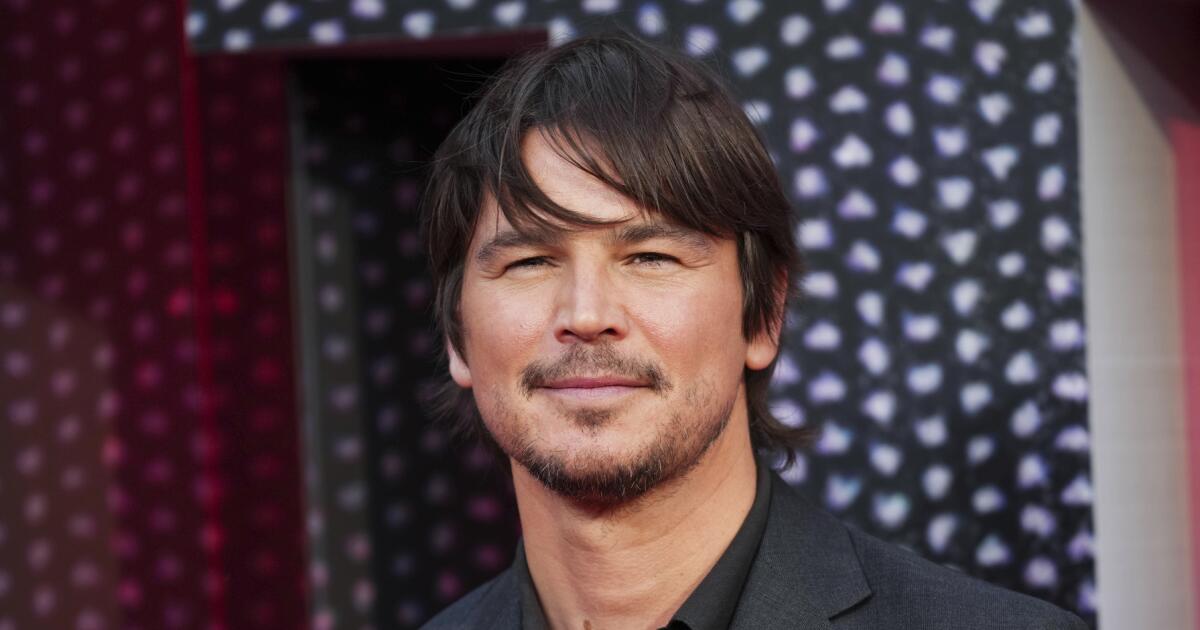Sony Pictures Entertainment has purchased Alamo Drafthouse Cinema, the innovative dine-in movie theater chain known as a prime cinephile destination, including at its location in downtown Los Angeles.
The Culver City-based studio said Wednesday that the quirky, Austin, Texas-based exhibition company will be housed under its newly established Sony Pictures Experiences division, helmed by Alamo Drafthouse’s Michael Kustermann. Kustermann will continue his role as chief executive of the cinema chain.
Sony did not disclose the price of the deal but promised to “preserve Alamo Drafthouse’s distinctive movie-dining experience.” The exhibitor — which boasts 35 locations in major U.S. cities including Los Angeles, Chicago, Boston, Austin and New York — is known for serving food and craft beer at its theaters.
It’s also famed for its strict no-texting policy and its special screenings, which made it a haven for movie buffs. The chain regularly hosts themed “movie parties” inspired by certain titles. (Upcoming movie-party screenings at the Los Angeles venue include 2007’s “Hot Fuzz,” 1984’s “Purple Rain” and 1939’s “The Wizard of Oz.”)
“Alamo Drafthouse’s differentiated movie-going experience, admired brand and devoted community fit well with this vision,” said Ravi Ahuja, president and COO of Sony Pictures Entertainment, in a statement. “We look forward to building upon the innovations that have made Alamo Drafthouse successful and will, of course, continue to welcome content from all studios and distributors.”
Alamo Drafthouse says it is the seventh-largest theater chain in North America. In a limited sense, Sony’s acquisition of Alamo is a flashback to Hollywood’s Golden Age, when the major studios also owned and operated their own theater chains, thereby controlling production, distribution and exhibition.
This vertical integration system triggered a major antitrust case that resulted in a 1948 U.S. Supreme Court decision that effectively broke up the studio oligopolies. In a series of settlements known as the Paramount decrees, the studios agreed to divest their theater assets.
During the Trump administration, however, the Justice Department sunset the decrees, determining them to be out of date.
Today, entertainment companies control production, distribution and exhibition in a different sense: Most of the major studios’ parent companies own streaming services. Sony is the only top studio without a mass-market streamer to compete with Netflix, though it offers some niche direct-to-consumer services, including anime outlet Crunchyroll.
Restrictions on studios owning theaters thawed in the decades after the decrees.
In the early 1980s, Columbia Pictures (now Sony Pictures) acquired a minority stake in Walter Reade Organization. Paramount Pictures and Warner Bros. owned the Mann theater chain for many years. Disney has long operated Hollywood Boulevard’s El Capitan, where it screens its movies and hosts special events. Netflix acquired the famed Egyptian Theatre on Hollywood Boulevard from American Cinematheque, as well as the Bay Theater in Pacific Palisades, where it also screens its own movies.
Under Sony, Alamo Drafthouse will keep all of its existing locations, including its only theater in California, which opened in downtown Los Angeles in 2019.
The studio acquired the exhibitor from private equity firms Altamont Capital Partners, Fortress Investment Group and founder Tim League, who launched Alamo Drafthouse with a single-screen Austin repertory theater with his wife, Karrie, in 1997.
Like many theater operators, Alamo Drafthouse struggled in the wake of the COVID-19 pandemic, which shuttered cinemas for months. The company filed for Chapter 11 bankruptcy protection in 2021, citing pandemic-related woes.
It emerged from bankruptcy under the ownership of a group of senior creditors, which included Altamont and Fortress.
“We are excited to make history with Sony Pictures Entertainment and have found the right home and partner for Alamo Drafthouse Cinema,” Kustermann said in a statement. “We were created by film lovers for film lovers. We know how important this is to Sony, and it serves as further evidence of their commitment to the theatrical experience.”















